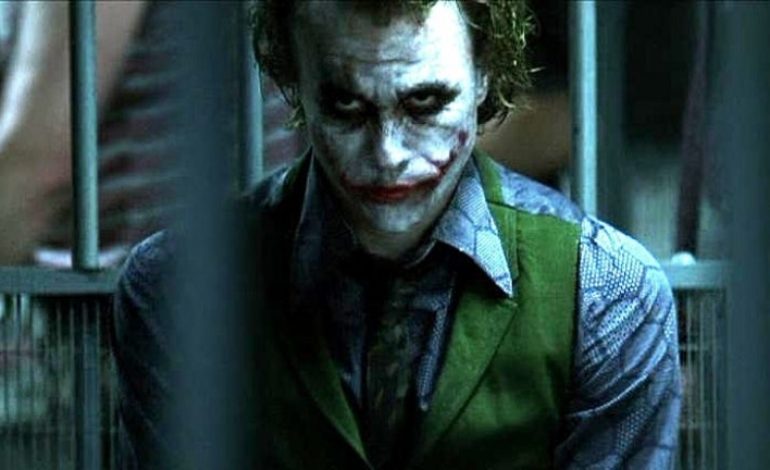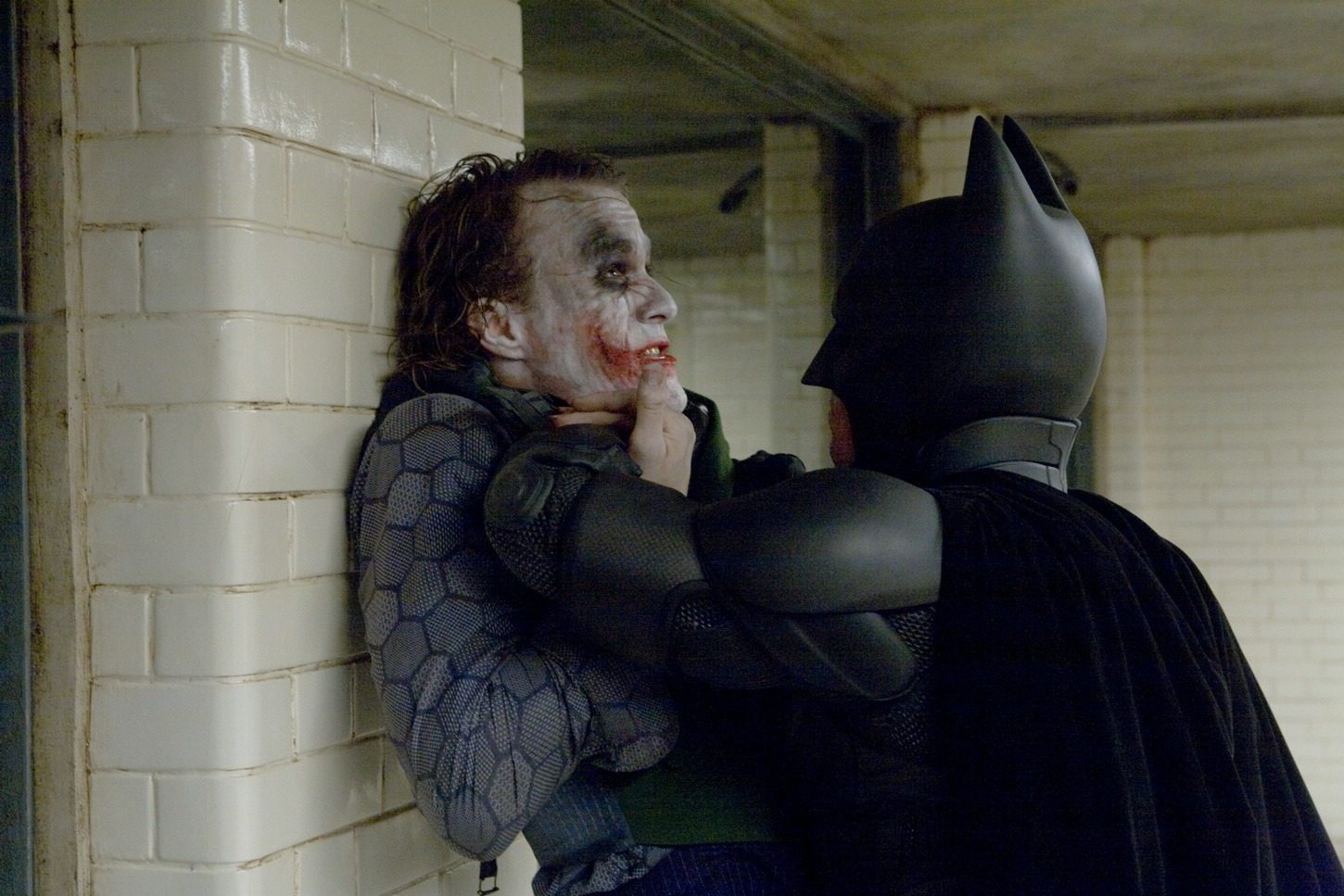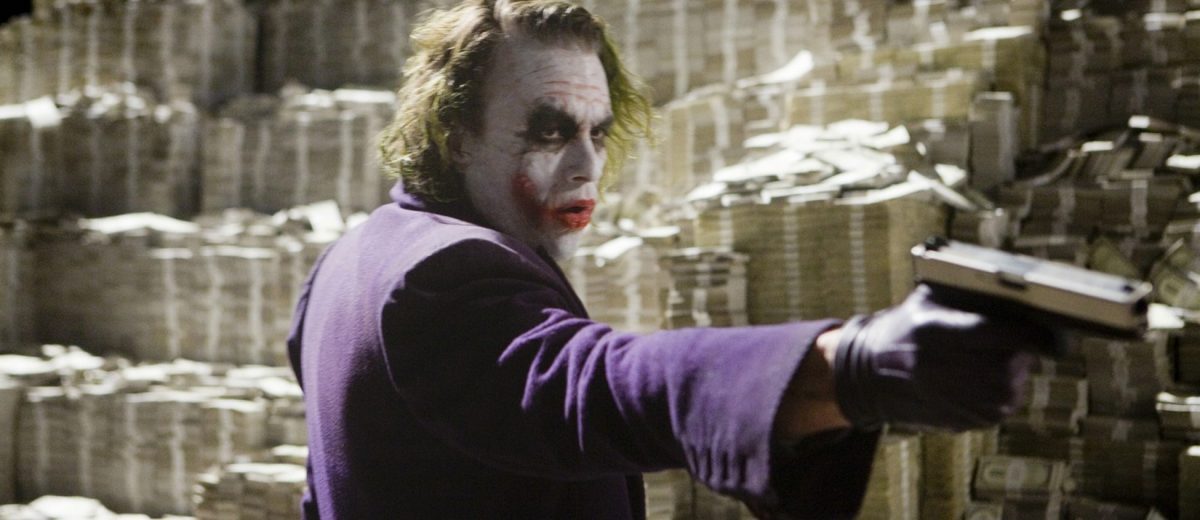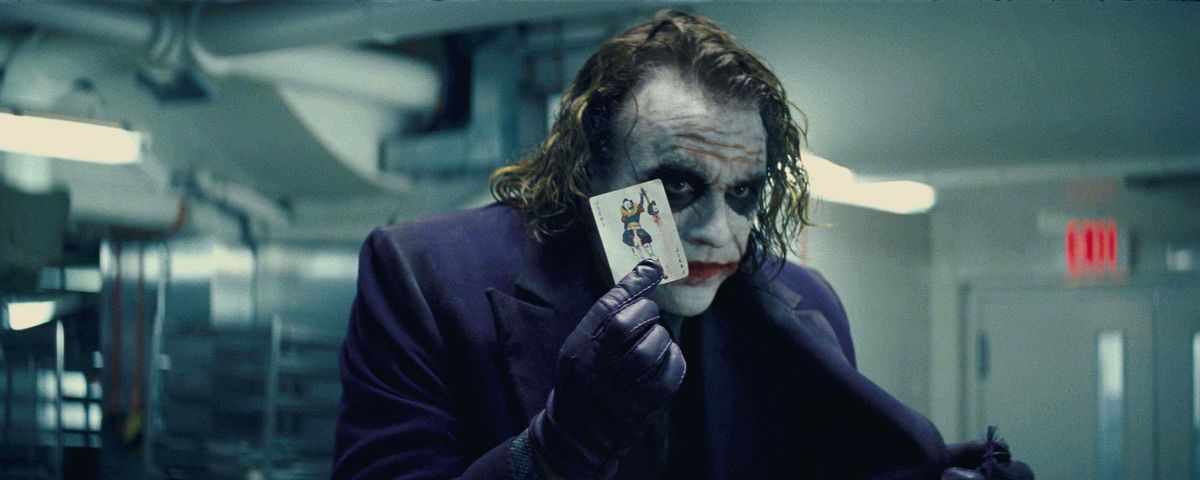

Thirteen years ago, I was returning home from picking up Mexican for dinner. I had set up shop in front of my kitchen television and waited for whatever main programming was set for the major channels. Why do I remember this moment so vividly?
‘Breaking News: 28 year old actor Heath Ledger has been found unresponsive. He has passed on.’
It was the first time something Hollywood-centric had rocked media coverage for me. Sure, movies were controversial and made headlines, but this was new. For someone who had just started leaving their legacy in Hollywood to die at such a young age was unthinkable. The world bonded together over his legacy. “I can’t believe Patrick from 10 Things I Hate About You is gone”. “Did you hear about the guy from Brokeback Mountain?”. Everyone had believed his best was behind us. Six months later, one of Ledger’s final performances was released and changed his legacy forever.


Ledger’s Joker performance is, to date, one of the best performances ever set to screen. The Dark Knight is not short on incredible talent giving top-tier performances, but Ledger brings something bigger to the character that we hadn’t seen since Mark Hamill defined the character’s voice in animation. Chaos with a smile. Dancing through a car crash. He brings a level of joy to the clown prince and his reign of terror on Gotham. It can be said that Ledger gave all of himself into this character, resulting in his untimely and all-too-soon passing, which certainly shows throughout the film. It’s a tragic performance, but one that solidifies what ability and talent Ledger possessed.
There’s a scene about halfway through The Dark Knight‘s runtime that shows Joker hanging his head out of a police cars’ window, waving his hair around the dark streets of Gotham as if he was cruising alongside Miami beach. This is our Joker: a villain who revels in the anarchy and watches corruption feed through others with a gleeful smile. Normally, Hollywood features characters who have a clear plan and something that can defeat them and their agenda. The Joker does not fit this mold. He is a cancerous thought that bleeds into whatever it grabs hold and lingers there. But to say that Ledger plays him only as evil and chaotic would be incorrect and unfair.


One of my favorite reoccurring moments from Ledger is when he offers up an explanation for his scarred face. The Joker provides a sick and traumatizing story that explains his appearance and, truthfully, gives some understanding to why he would be so chaotic. It’s something one would expect from a lesser movie and paints the character as human but damaged (Other films would opt to instead tattoo the word ‘damaged’ on the character’s forehead…). But it’s when Rachel hears the story that we realize that we aren’t hearing the truth from The Joker. He is just playing with his victims and giving them a fake story to sympathize with before blood spills. This changes the whole movie. A character we once thought was understood is revealed to be unpredictable and truly insane for no known purpose. Perhaps an accidental nod, but a nod nonetheless to how expected origin stories are in franchise films.
One of the reasons The Dark Knight deserves the admiration it receives so often is just how truly well-rounded of a film it is. The action is well directed by Christopher Nolan and the script suits the grit of Gotham’s streets while also giving life to the suits surrounding Wayne Enterprises. But a key component for how effective of a movie The Dark Knight is lies solely with the humor of Ledger’s performance. Never does he slip on a banana peel or reach for a typical joke, instead playing the subtle card and sliping in the occasional whim or two. Answering Gambol’s question of “You think you could just steal from us and walk away?” with a confident “Yeah”. Taking off his surgical mask while donning a wig and a nurse’s outfit and letting out a gentle and awkward “Hi” to Harvey Dent. Even down to his mannerisms, Ledger transforms into a cartoonish yet grounded in reality character who is always laughing.


The Dark Knight is an incredible experience and it wouldn’t be half the movie it is without Ledger’s phenomenal depiction of the Clown Prince of Crime. One reason this rings true is what The Joker means to Batman’s philosophy. Batman is a hero who fights for what’s right and defends justice in Gotham. The Joker seeks only to remind the citizens of Gotham that there are other paths to walk down. Paths of hate, anger, jealousy, and other emotions that seek control of your decisions. The corruption of Harvey Dent by Joker is what makes Bruce question why the Batman exists. Sure, watching Batman defeat The Scarecrow and Bane is a lot of fun, but there’s little to break down about the meaning of it all. The Joker is the true dark side of Batman, as beautifully told in the Arkham Knight video game. Nolan plays this relationship of control and chaos beautifully and lets Ledger transform Gotham into his sandbox to show how much fun anarchy can be and the fragile nature of society.
To think of the Joker as the role that took Heath Ledger away from the world is a difficult one. The psyche a character of this magnitude alone could drive anyone to madness. And yet there remains something truly breathtaking and unimaginable about Ledger’s performance in The Dark Knight and creates enormous shoes for future celebrities to fill.
